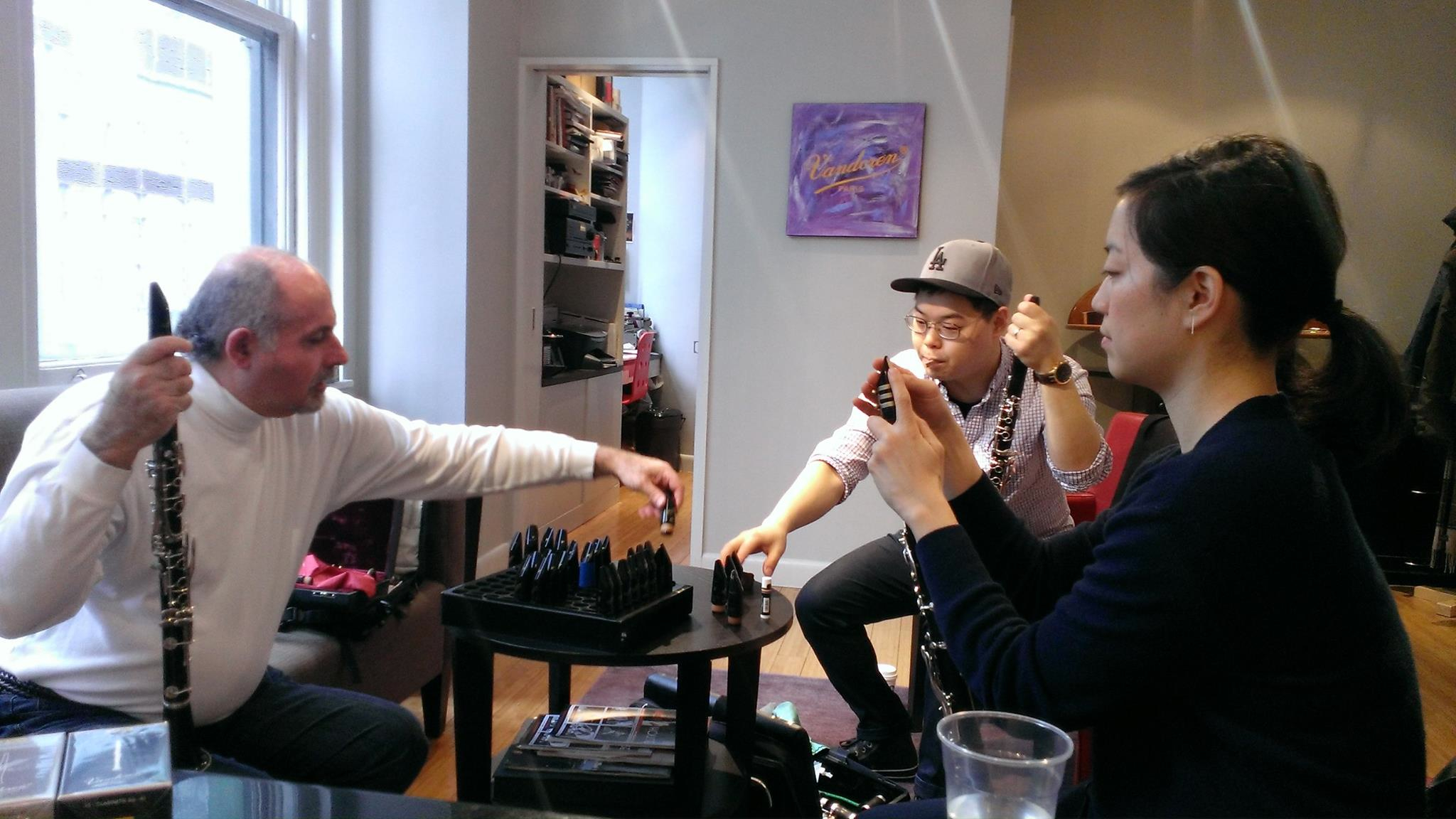Teaching Philosophies and Prospective Students with Yehuda Gilad
Date Posted: May 04, 2016

VandorenUSA: You are renowned for your teaching and have one of the top clarinet studios in the country – what do you look for in prospective students?
Yehuda Gilad: First and foremost, a student must be a great human being. Then I look for fantastic musicianship and technical ability that are matched in quality. Finally, the student must have something to say—I look for their own voice and initiative.
In addition to being a respected performer and teacher, you are also known for conducting. In what ways does conducting make you a better musician and teacher?
YG: In terms of musicianship, conducting affords me the ability to see the whole picture – all the colors, and how each individual line fits with the others.
To use a metaphor, it’s like seeing the whole picture from a fair distance. As a conductor who is also a teacher, I know what I personally would like to hear from individual players, and I can share that with my students. In addition, the overall knowledge of the full score – the harmony, modulation, and style – makes for better teaching.
Could you please discuss your teaching philosophies?
YG: That’s a tough question! The important part is that I teach the individual—his or her personality, his or her tendencies, his or her way of presenting oneself. I believe in working on their machine (i.e. the body) to be able to let their true and genuine voice come through, and I use various techniques to achieve that particular aspect.
I believe that to be a great musician, one must be an Olympic quality athlete, a very profound philosopher (of ideas, emotions, logic, etc.), and have a great sense of humor. By this, I mean that a student must be able to put the ego aside and therefore let the music pass through him or her genuinely.
I encourage my students to explore and to be curious at all times.
I think of my own teaching quality as a very “bad” teacher for today, but a very “good” teacher for tomorrow and the future. A student must have patience, and once they get the concepts, then these will last forever and they can blossom.
In addition, they will gain the ability to teach themselves. Thus, I don’t believe in constant imitation as the primary tool of teaching—I just play very short phrases or very few notes to illustrate certain concepts. In the end, they must discover their own voice and their own ways. It might take longer, but once they understand and hear it, this ability will stay with them always.
Having performed, taught, and conducted internationally, what are the similarities and differences you have noted among clarinetists worldwide?
YG: In the recent past, the differences were many, but this is no longer true. The emphasis right now is the same in all countries: most players excel in what I call the first three categories of my “ABC’s,” which are great intonation, great rhythm, and great and diverse articulation. Most accomplished players meet this standard, so the differences today are more nuanced. I believe that the differences are now connected to the languages of each country I visit. The way native speakers enunciate, the diction and expression within the languages, and something inherent to the culture of each country of origin, which is fascinating. The music of the language has a direct result in their playing, and I try to capitalize on that. My goal is to make each of them a little more global—not to lose that language background, but to be able to simulate a more global sense of music making.
My basic belief is that each player is born with a beautiful sound inside, and my mission is to get that particular sound the player was born with out in the open.
"My basic belief is that each player is born with a beautiful sound inside, and my mission is to get that particular sound the player was born with out in the open." - Yehuda Gilad
What are some of your favorite pieces to perform or conduct?
YG: I really don’t have a particular favorite—I love so much music and all the different styles, both for playing and for conducting. If I absolutely have to mention something, I’ll speak in terms of favorite composers: Brahms, Mahler, Schubert, W.A. Mozart, Richard Strauss, Stravinsky, Shostakovich, and the “rabbi” of them all, J.S. Bach, to name just a few. As a musician, I teach myself (and my students) to be the greatest actors and actresses. Thus, they should be able to play any style, any character, and any mood with their own conviction.
Who are your musical inspirations?
YG: Besides my own teachers (who were Giora Feidman and Mitchell Lurie for clarinet, and Herbert Zipper and Sergiu Celibidache for conducting), I have found inspiration from Arthur Rubinstein, Alfred Brendel, Jascha Heifetz, Igor Oistrakh, Maria Callas, Jessye Norman, Frederica “Flicka” von Stade, Plácido Domingo, Leontyne Price, among others. For conducting, I have always enjoyed Wilhelm Furtwängler.
If you could meet any composer dead or alive, who would it be and why?
YG: Since it’s impossible to choose just one, here is my list:
J.S. Bach for his simplicity, and the innovation and clarity of his ideas; Richard Strauss to learn about the diversity of the struggle he experienced during a very trying period of his life; Stravinsky because I think he was one of the best composers of the 20th century, and one which the judge of history will be very kind to; Mozart and Brahms, just to thank them for being very close friends of the clarinet! (Haha.) Also because they are great innovators and explorers of the purity of music.